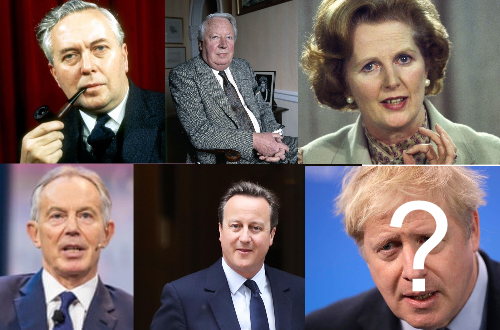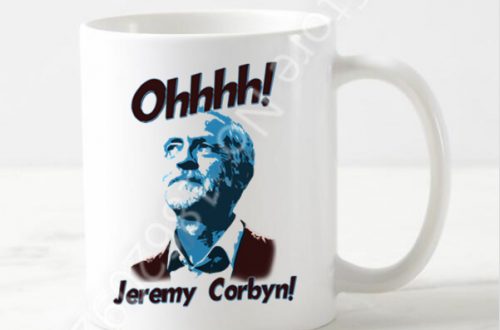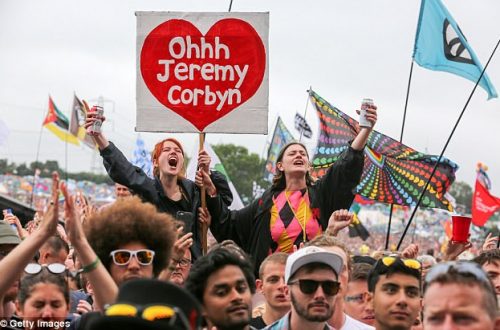There is a typical scene at the end of bank-robbery films when the criminals gather to share out the loot. Just as the cash is about to be split up one of the men takes out a gun and shoots another – now there are only two them to divide up the spoils. The survivor grins for a second or two as he realises his increased fortune. Then he too is shot.
There is a lot of robbery described in Cohen’s book and few are spared from his machine gun. After four chapters attacking New Labour’s cynical approach to crime, asylum, the electorate, the left-wing reader might well have a smug grin on his face – only for Cohen turns his gun on him with a scathing and brilliant attack on the anti-war movement.
Cohen’s critique of the Stop the War Coalition and their more prominent supporters, frequently noted on this blog, is however a sideshow from the main business of exposing New Labour for what it is. Unlike many other books on the Blair years, Cohen avoids detailed analysis of the internal power battles in the Party and Westminster or the ponderings on theories of Third Way ‘ideology’. Instead, as a journalist, he tells the story, putting Blair and his followers in the context of the new economy boom years.
First he shows how New Labour, learning from Bill Clinton, ‘triangulated’ the Tories on race and crime by outflanking them from the right. As a reporter covering home affairs Cohen got an early taste of what was to come when he approached the then Shadow Home Secretary, Tony Blair, with a censored speech from a Tory minister referring to ‘vermin’ who should be driven from the streets.
He called Blair up. “The Shadow Home Secretary went quiet. He agreed to make a vague criticism of Maclean’s ‘wild talk’ but he was clearly uncomfortable. ‘You see,’ he muttered, ‘ a lot of Daily Mail readers would agree with him’.
I wondered why a Labour politician would care about the reaction of a newspaper which hated all his party stood for. A disquieting thought about the direction Blair was taking flickered through my mind. I dismissed it as a laughable flight of fancy and went away thinking that all I had done was catch him in a wet patch. It’s a miracle I wasn’t thrown out of journalism years ago.”
The New Labour obsession with the Daily Mail that Cohen got an early taste of is returned to later in the book and explains Blair’s infamous weakness for ludicrous headline-grabbing schemes on crime and the spineless approach to asylum.
The second half of the book deals with how New Labour fell for the ‘bubble’ of the New Economy and were dazzled by the ‘post-modern’ rhetoric of the likes of Charles Leadbetter and other former Marxism Today/think tank gurus and fawned in front of the millionaires of the telecom stocks boom.
Blair’s famous attack on the ‘forces of conservatism’ (which included trade unions as much, if not more, than the Tory Party) is contrasted with his Chronocentrism, which Cohen defines as, ‘the egotistical belief that your age is poised on the cusp of history, that the world has never before seen what you are seeing. New Labour was chronically chronocentric. It needed the bubble and the bubble needed New Labour’s thin air to inflate it.”
The bubble burst of course and with it went millions in investors money and scores of shaky companies. Despite attaching itself so closely to the boom Labour survived the dot.com bust but its friends didn’t. How a Labour government managed to get itself in bed with the hideously corrupt and unethical Enron and their accountants Arthur Andersen is a story that tells us much about the nature of the project and its protagonists.
There are, of course, also the scandals of Bernie Ecclestone, the Hinduja brothers and Lakshmi Mittal. As Peter Mandelson puts it “New Labour is intensely relaxed about people getting filthy rich.” .Indeed, but it also seemed intensely relaxed about the rich behaving like filth.
In his Guardian review of Pretty Straight Guys Roy Hattersley makes two main criticisms. While he agrees with much of the polemic against Blair’s government he feels some credit is due for areas where there have been progress, such as the minimum wage.
Hattersley says: “I agree, as do most trade unions, that the minimum wage is set at far too low a rate. But one of the achievements of the Government is its introduction. The law which sets a statutory minimum will never be repealed. It is something to build on. There are moments, even in the lifetime of the Blairite Project, when it is better to rejoice at the possibility of building rather than complain that the structure has only reached foundation levels.”
Indeed there are many areas of policy that are ignored by Cohen– there is almost no discussion of the NHS, Education or urban projects. Devolution for Wales and Scotland merit little more than passing references. Surely all these have to be taken into account when assessing Blair’s premiership as a whole?
Nor does the book deal with what, for many left supporters of the war, has been a dilemma in recent months – what about Blair and Iraq? We know that domestically and in terms of the EU, Blair has lacked courage and conviction and some of us might even think that he has little interest in the left’s traditional domestic agenda in the first place (a view strengthened by reading this book) but did he not have the courage to stand against the opinion polls and focus groups over Iraq?
Aside from the mess he has allowed himself to get into over WMD, he also made some stirring speeches on the need to liberate Iraq that were very much in tune with Cohen’s columns on the issue. Does Cohen think this was just opportunism on Blair’s part? Was his stance on Kosovo, Afghanistan and Iraq merely the work of a European sales rep for the Whitehouse or was it the principled action of a man who really does believe in using military force to save innocent lives and liberate peoples?
We don’t get answers to those questions.
It is not then a total balance sheet of New Labour’s achievements and failures but more a polemic against the overall style and attitude of the party and country under Blair.
Hattersley’s other criticism is that Cohen doesn’t tell us what he is for, what he would replace the Project with. This is a less valid point – the book does not claim to be the future of democratic socialism explained nor is it a policy pamphlet. But there are enough hints in the book to give us a clue as to where the author stands and certainly enough to reject the silly claim from some anti-war opinion that Cohen has ‘resigned from the left’.
For a start he thinks there is no point to the Labour Party if it doesn’t represent labour – a viewpoint that sadly is radical these days. He rejects the free-market consensus that the party leadership has accepted and argues that government’s should regulate, offering (in contrast to a lot of the anti-globalisers) a reminder of the power of the state over corporations. He thinks the prejudice should be challenged and not pandered to and despises the manipulation that is at the heart of New Labour.
At the same time he has fallen out with the old left over their ‘pure opposition’ on Iraq which “led into the trap of looking-glass politics. As universal principles were abandoned for opposition to the West whatever it did, the left matched the hypocrisies of power with equal hypocrisies in the opposite direction.”
He says of the anti-war movement that “with leadership on the streets of this calibre, the left was bound to lose. It will always lose until it makes a clean break with totalitarianism old and new.’ Quite.
An aggressive argument then, Pretty Straight Guys is a hugely enjoyable and informative read. It is not dry political analysis because above all Cohen is, like Christopher Hitchens, a polemicist. When he turns that gun on one of his targets there is rarely a single shot to the head but rather a spray of bullets all over the victim – few are left smiling.


